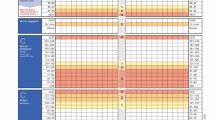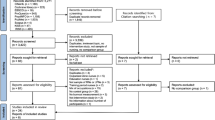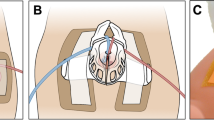Abstract
Objectives:
To determine what sources of information are most helpful for neonatal intensive care unit (NICU) parents, who provides NICU parents with the information, and also what expectations parents have regarding obtaining information.
Study design:
A 19-item questionnaire was given to the parents of infants 32 weeks or younger prior to discharge from the NICU.
Results:
Out of the 101 parents who consented, almost all of the parents (96%) felt that ‘the medical team gave them the information they needed about their baby’ and that the ‘neonatologist did a good job of communicating’ with them (91%). However, the nurse was chosen as ‘the person who spent the most time explaining the baby's condition, ‘the best source of information,’ and the person who told them ‘about important changes in their baby's condition’ (P<0.01).
Conclusion:
Although the neonatologist's role in parent education is satisfactory, the parents identified the nurses as the primary source of information.
This is a preview of subscription content, access via your institution
Access options
Subscribe to this journal
Receive 12 print issues and online access
$259.00 per year
only $21.58 per issue
Buy this article
- Purchase on Springer Link
- Instant access to full article PDF
Prices may be subject to local taxes which are calculated during checkout
Similar content being viewed by others
References
Kenner C . Caring for the NICU parent. J Perinat Neonatal Nurs 1990; 4(3): 78–87.
Kenner C, Lott JW . Parent transition after discharge from the NICU. Neonatal Network 1990; 9(2): 31–37.
Bass LS . What do parents need when their infant is a patient in the NICU? Neonatal Network 1991; 10(4): 25–33.
Brazy JE, Anderson BMH, Becker PT, Becker M . How parents of premature infants gather information and obtain support. Neonatal Network 2001; 20(2): 41–48.
Blackington SM, McLauchlan T . Continuous quality improvement in the neonatal intensive care unit: Evaluating parent satisfaction. J Nurs Care Qual 1995; 9(4): 78–85.
Wereszczak J, Miles MS, Holditch-Davis D . Maternal recall of the neonatal intensive care unit. Neonatal Network 1997; 16(4): 33–40.
Hunter RS, Kilstrom N, Kraybill EN, Loda F . Antecedents of child abuse and neglect in premature infants: a prospective study in a newborn intensive care unit. Pediatrics 1978; 61(4): 629–635.
Harrison H . The principles of family-centered neonatal care. Pediatrics 1993; 92(5): 643–649.
Shallaberger SG, Thompson TL . The critical times: Meeting parental communication needs throughout the NICU experience. Neonatal Network 1993; 12(2): 39–44.
Robinson TMS . Teaching parents in the NICU. Neonatal Network 1991; 10(2): 73–74.
Paul DA, Epps S, Leef KH, Stefano JL . Prenatal consultation with a neonatologist prior to preterm delivery. J Perinatol 2001; 21: 1–7.
Dhillon AS, Albersheim SG, Alsaad S, Pargass NS, Zupancic JAF . Internet use and perceptions of information reliability by parents in a neonatal intensive care unit. J Perinatol 2003; 23: 420–424.
Ballard JL, Khoury JC, Wedig K, Wang L, Eilers-Walsman BL, Lipp R . New ballard score, expanded to include extremely premature infants. J Pediatr 1991; 119: 417–423.
Papile LA, Burstein R, Kofler H . Incidence and evolution of subependymal and intraventricular hemorrhage: a study of infants with birth weights less than 1500 g. J Pediatr 1978; 92: 5.
Richardson DK, Gray JE, McCormick MC, Workman K, Goldmann DA . Score for neonatal acute physiology: a physiologic severity index for neonatal intensive care. Pediatrics 1993; 91: 617–623.
Kassity N, Lockridge T . Should parents participate in patient rounds in the NICU? MCN AM J Matern Child Nurs 1999; 24(2): 64–65.
Kowalski WJ, Lawson MD, Oelberg DG . Parents and nurses perceptions of confidentiality, rounding and visitation policy in a neonatal intensive care unit. Neonatal Intens Care 2003; 16(3): 46–50.
Author information
Authors and Affiliations
Corresponding author
Rights and permissions
About this article
Cite this article
Kowalski, W., Leef, K., Mackley, A. et al. Communicating with parents of premature infants: who is the informant?. J Perinatol 26, 44–48 (2006). https://doi.org/10.1038/sj.jp.7211409
Received:
Revised:
Accepted:
Published:
Issue Date:
DOI: https://doi.org/10.1038/sj.jp.7211409
Keywords
This article is cited by
-
Exploring implicit bias in the perceived consequences of prematurity amongst health care providers in North Queensland – a constructivist grounded theory study
BMC Pregnancy and Childbirth (2021)
-
Compassionate extubation protocol to improve team communication and support in the neonatal intensive care unit
Journal of Perinatology (2021)
-
Neonatal Intensive Care Unit discharge preparedness among families with limited english proficiency
Journal of Perinatology (2019)
-
Non-verbal Communication in a Neonatal Intensive Care Unit: A Video Audit Using Non-verbal Immediacy Scale (NIS-O)
The Indian Journal of Pediatrics (2018)
-
The neonatal intensive parenting unit: an introduction
Journal of Perinatology (2017)



